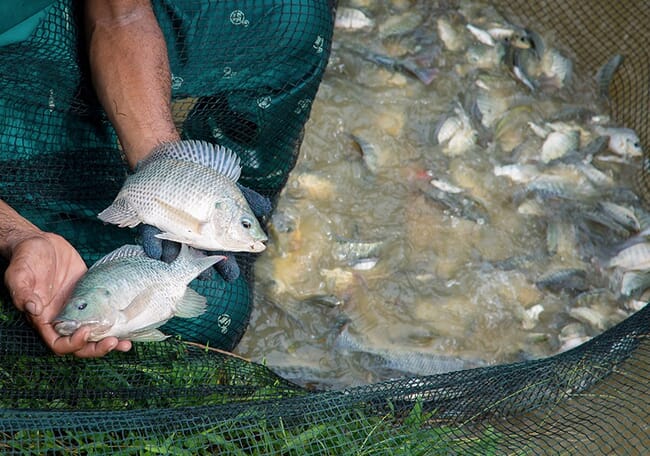The commitment will support: (1) the development of a new, multi-year global research programme on fish and future aquatic foods; and (2) the establishment of a Fish for Africa Innovation Hub to help accelerate national and regional efforts to meet the UN’s sustainable development goals by 2030 through cutting-edge market and policy innovations, informed by scientific evidence on affordable, safe and sustainably fish and aquatic foods.

The pledges were made on 25 October during the 6th annual Our Ocean conference, hosted by the government of Norway.
“There’s great promise in fish and aquatic foods to feed billions, nourish nations, and help us make the much-needed transition to healthier diets and more sustainable food systems,” said Dr Gareth Johnstone, director general of WorldFish. “We must make fish and aquatic foods matter to as many policy makers, investors and entrepreneurs as possible and place them at the heart of the food and nutrition security agenda and the wider efforts to meet the sustainable development goals by 2030. Our commitment will ensure good food policies and smart investments for a healthy and sustainable future are informed by solid scientific evidence on the critical value of fish and aquatic foods to the health of people and our planet.”
Specifically, this new voluntary commitment will focus on:
- Strategic foresight studies to generate scientific evidence on the trade-offs and synergies across water- and land-based food production systems, and the effects of issues like the rise of lab-grown or “synthetic” fish meat. It will also include national foresight studies for India and Nigeria – countries with large fisheries sectors that are expected to grow significantly in the coming years. Ultimately, WorldFish will utilize this new research program on fish and aquatic foods to build a coalition of public and private partners to help accelerate the transition to sustainable aquatic food systems and enhanced ocean governance.
- Building the business case for and establishing a first of its kind Fish for Africa Innovation Hub to be located in Africa, for Africa with the mission to deliver cutting edge science, technology, policy and market innovations to transform aquaculture and fish value chains in the continent, and support efforts to build a sustainable and inclusive blue economy that benefits both people and the environment. The hub is envisaged as a public-private partnership operating as an independent not-for-profit institution. The idea for such an institute emerged following a 2019 foresight study produced by WorldFish, the Food and Agriculture Organization of the United Nations (FAO) and the International Food Policy Research Institute (IFPRI), which projects a large rise in aquaculture in Africa, and the potential for tens of millions of new jobs in fish production, processing and trade by 2050.
This latest pledge by WorldFish is in addition to the 2017 commitment of $57.8 million to generate scientific research and innovations in support of the sustainable development of small-scale fisheries in the framework of the CGIAR Research Program on Fish Agri-food Systems, which WorldFish leads in partnerships with International Water Management Institute, James Cook University, the University of Greenwich and Wageningen University & Research.

